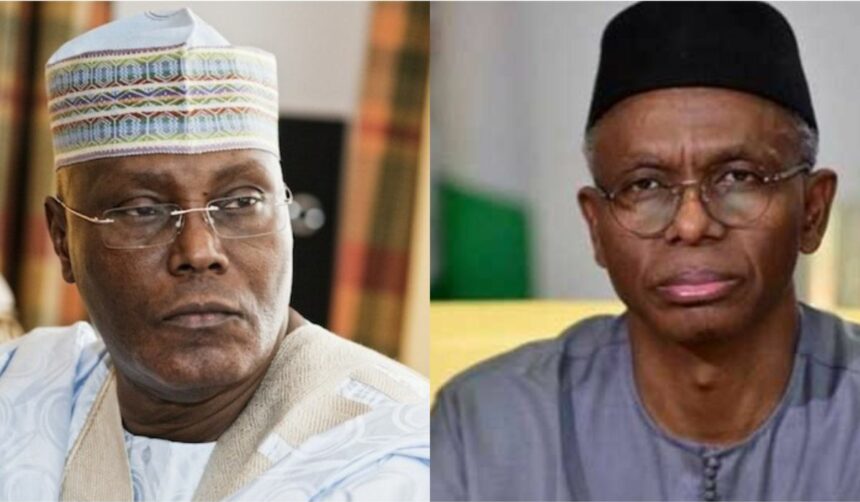Nasir El-Rufai has stated that the views of Atiku Abubakar on the cash swap policy of the Central Bank of Nigeria (CBN) show the presidential candidate that the Peoples Democratic Party (PDP) has no concern for the poor masses.
The Kaduna state governor added that by asking the CBN not to extend the deadline beyond Friday, February 10, has confirmed Atiku has no regard or sympathy for the common people who are mostly affected by the policy.
El Rufai said on a TV interview TVC on Thursday, February 2, 2023:
READ ALSO: Peter Obi is a Nollywood actor – El-Rufai plays down chances of LP flagbearer in 2023 polls
“If you look at the statement from the other party after I spoke on the cash swap, we are not against the policy. Cashless is the way to go. We have no problem with it, but you don’t do it in a few weeks.
“Allow time for every farmer, trader, student, market women in the villages to be able to take their money to the bank and get new currency or go and meet them where they are doing their business. Let us sit down and look at this thing and give a reasonable time to do this thing.”
On Atiku’s rejection of further calls for extension of the policy, he added:
“The fact that the presidential candidate of the PDP, who last week issued statement appealing for extension because he wanted to get sympathy now turning around to sing another song speaks volume. He wanted to come out to speak against our party and the president.
“Now, with the extension of 10 days, he is turning round to say that the CBN should not extend means something. It shows clearly that he is benefiting from the pain Nigerians are going through at the moment. “I have seen protest in Lagos today. I have reports of people in Kaduna that cannot buy food; they cannot sell because there is no cash, and yet, the PDP’s presidential candidate says don’t extend because he is gaining from it.”
“I want Nigerians to understand very clearly that it is unfortunate that somebody who advocated for extension last week is now saying don’t extend. If he has the poor at heart, the farmers, the market women and men, the villagers, he won’t say that.”










